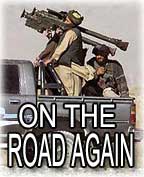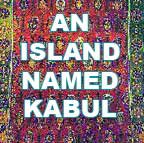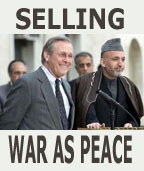


Hier kunt u informatie vinden over Afghanistan, informatie van de Amerikaanse hoogleraar Marc Herold. Informatie waarover de Nederlandse politici niet beschikken en ook niet wensen te beschikken. Dit is het verhaal dat men niet wil horen. 'Four years after the U.S.-led attack on Afghanistan, the true meaning of the U.S occupation is revealing itself. Afghanistan represents merely a space that is to be kept empty. Western powers have no interest in either buying from or selling to the blighted nation. The impoverished Afghan civilian population is as irrelevant as is the nation's economic development. But the space represented by Afghanistan in a volatile region of geo-political import, is to be kept vacant from all hostile forces. The country is situated at the center of a resurgent Islamic world, close to a rising China (and India) and the restive ex-Soviet Asian republics, and adjacent to oil-rich states. The only populated centers of any real concern are a few islands of grotesque capitalist imaginary reality -- foremost Kabul -- needed to project the image of an existing central government, an image further promoted by Karzai's frequent international junkets. In such islands of affluence amidst a sea of poverty, a sufficient density of foreign ex-pats, a bloated NGO-community, carpetbaggers and hangers-on of all stripes, money disbursers, neo-colonial administrators, opportunists, bribed local power brokers, facilitators, beauticians (of the city planner or aesthetician types), members of the development establishment, do-gooders, enforcers, etc., warrants the presence of Western businesses. These include foreign bank branches, luxury hotels (Serena Kabul, Hyatt Regency of Kabul), shopping malls (the Roshan Plaza, the Kabul City Centre mall), import houses (Toyota selling its popular Land Cruiser), image makers (J. Walter Thompson), and the ubiquitous Coca-Cola
1. The "other," the real economy -- is a vast informal one in which the Afghan masses creatively eke out a daily existence.
2 They are utterly irrelevant to the neo-colonist interested in running an empty space at the least cost. The self-financing opium economy reduces such cost and thrives upon invisibility. The invisible multitudes represent a nuisance -- much like Kabul's traffic -- upon maintaining the empty space. Only the minimal amount of resources -- whether of the carrot or stick type -- will be devoted to preserving their invisibility. Many of those who returned after the overthrow of the Taliban are now seeking to emigrate abroad, further emptying the space.
3.' Lees verder:
http://www.cursor.org/stories/emptyspace.html En hier:
http://pubpages.unh.edu/~mwherold/


 Hier kunt u informatie vinden over Afghanistan, informatie van de Amerikaanse hoogleraar Marc Herold. Informatie waarover de Nederlandse politici niet beschikken en ook niet wensen te beschikken. Dit is het verhaal dat men niet wil horen. 'Four years after the U.S.-led attack on Afghanistan, the true meaning of the U.S occupation is revealing itself. Afghanistan represents merely a space that is to be kept empty. Western powers have no interest in either buying from or selling to the blighted nation. The impoverished Afghan civilian population is as irrelevant as is the nation's economic development. But the space represented by Afghanistan in a volatile region of geo-political import, is to be kept vacant from all hostile forces. The country is situated at the center of a resurgent Islamic world, close to a rising China (and India) and the restive ex-Soviet Asian republics, and adjacent to oil-rich states. The only populated centers of any real concern are a few islands of grotesque capitalist imaginary reality -- foremost Kabul -- needed to project the image of an existing central government, an image further promoted by Karzai's frequent international junkets. In such islands of affluence amidst a sea of poverty, a sufficient density of foreign ex-pats, a bloated NGO-community, carpetbaggers and hangers-on of all stripes, money disbursers, neo-colonial administrators, opportunists, bribed local power brokers, facilitators, beauticians (of the city planner or aesthetician types), members of the development establishment, do-gooders, enforcers, etc., warrants the presence of Western businesses. These include foreign bank branches, luxury hotels (Serena Kabul, Hyatt Regency of Kabul), shopping malls (the Roshan Plaza, the Kabul City Centre mall), import houses (Toyota selling its popular Land Cruiser), image makers (J. Walter Thompson), and the ubiquitous Coca-Cola1. The "other," the real economy -- is a vast informal one in which the Afghan masses creatively eke out a daily existence.2 They are utterly irrelevant to the neo-colonist interested in running an empty space at the least cost. The self-financing opium economy reduces such cost and thrives upon invisibility. The invisible multitudes represent a nuisance -- much like Kabul's traffic -- upon maintaining the empty space. Only the minimal amount of resources -- whether of the carrot or stick type -- will be devoted to preserving their invisibility. Many of those who returned after the overthrow of the Taliban are now seeking to emigrate abroad, further emptying the space.3.' Lees verder: http://www.cursor.org/stories/emptyspace.html En hier: http://pubpages.unh.edu/~mwherold/
Hier kunt u informatie vinden over Afghanistan, informatie van de Amerikaanse hoogleraar Marc Herold. Informatie waarover de Nederlandse politici niet beschikken en ook niet wensen te beschikken. Dit is het verhaal dat men niet wil horen. 'Four years after the U.S.-led attack on Afghanistan, the true meaning of the U.S occupation is revealing itself. Afghanistan represents merely a space that is to be kept empty. Western powers have no interest in either buying from or selling to the blighted nation. The impoverished Afghan civilian population is as irrelevant as is the nation's economic development. But the space represented by Afghanistan in a volatile region of geo-political import, is to be kept vacant from all hostile forces. The country is situated at the center of a resurgent Islamic world, close to a rising China (and India) and the restive ex-Soviet Asian republics, and adjacent to oil-rich states. The only populated centers of any real concern are a few islands of grotesque capitalist imaginary reality -- foremost Kabul -- needed to project the image of an existing central government, an image further promoted by Karzai's frequent international junkets. In such islands of affluence amidst a sea of poverty, a sufficient density of foreign ex-pats, a bloated NGO-community, carpetbaggers and hangers-on of all stripes, money disbursers, neo-colonial administrators, opportunists, bribed local power brokers, facilitators, beauticians (of the city planner or aesthetician types), members of the development establishment, do-gooders, enforcers, etc., warrants the presence of Western businesses. These include foreign bank branches, luxury hotels (Serena Kabul, Hyatt Regency of Kabul), shopping malls (the Roshan Plaza, the Kabul City Centre mall), import houses (Toyota selling its popular Land Cruiser), image makers (J. Walter Thompson), and the ubiquitous Coca-Cola1. The "other," the real economy -- is a vast informal one in which the Afghan masses creatively eke out a daily existence.2 They are utterly irrelevant to the neo-colonist interested in running an empty space at the least cost. The self-financing opium economy reduces such cost and thrives upon invisibility. The invisible multitudes represent a nuisance -- much like Kabul's traffic -- upon maintaining the empty space. Only the minimal amount of resources -- whether of the carrot or stick type -- will be devoted to preserving their invisibility. Many of those who returned after the overthrow of the Taliban are now seeking to emigrate abroad, further emptying the space.3.' Lees verder: http://www.cursor.org/stories/emptyspace.html En hier: http://pubpages.unh.edu/~mwherold/



Geen opmerkingen:
Een reactie posten